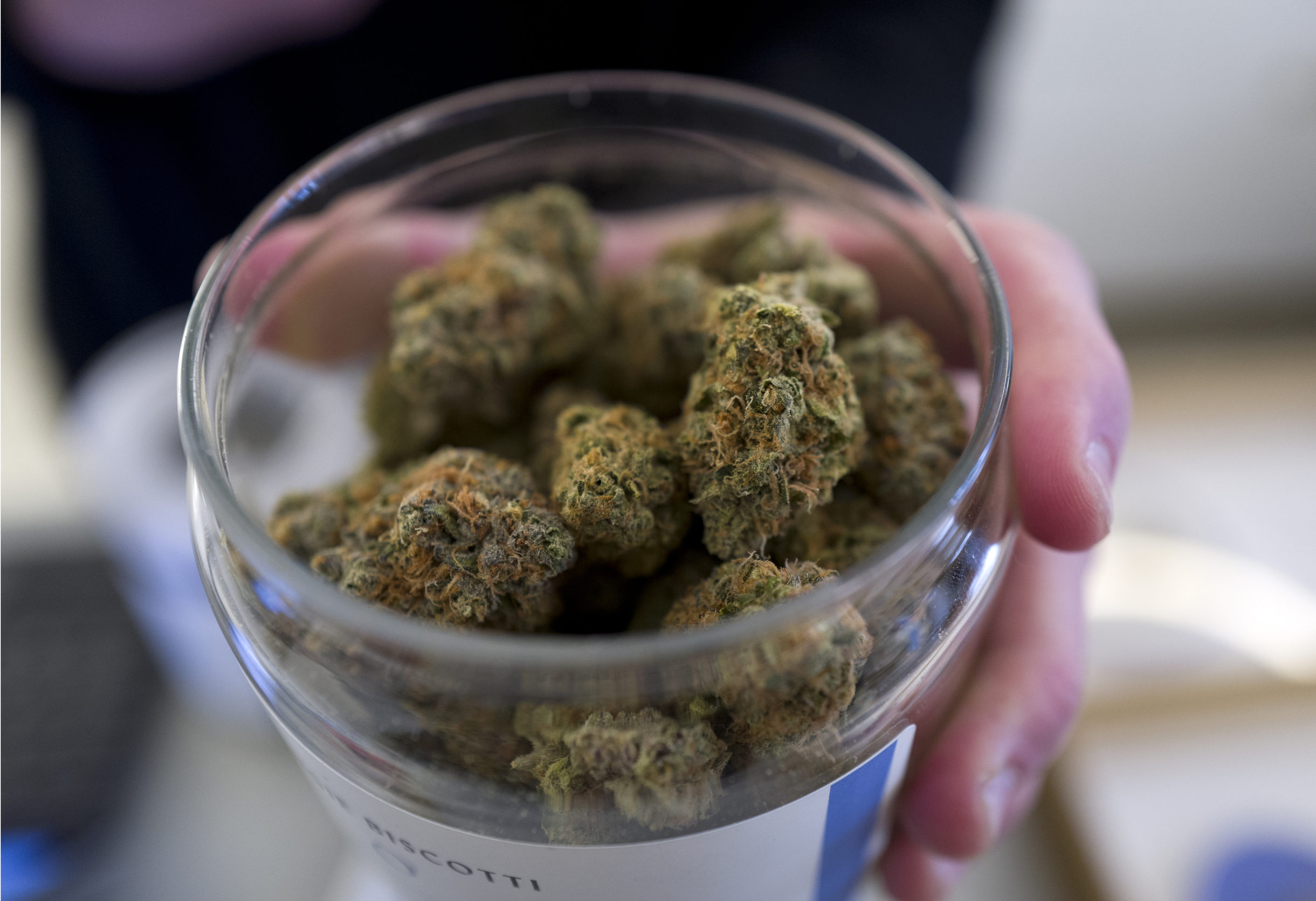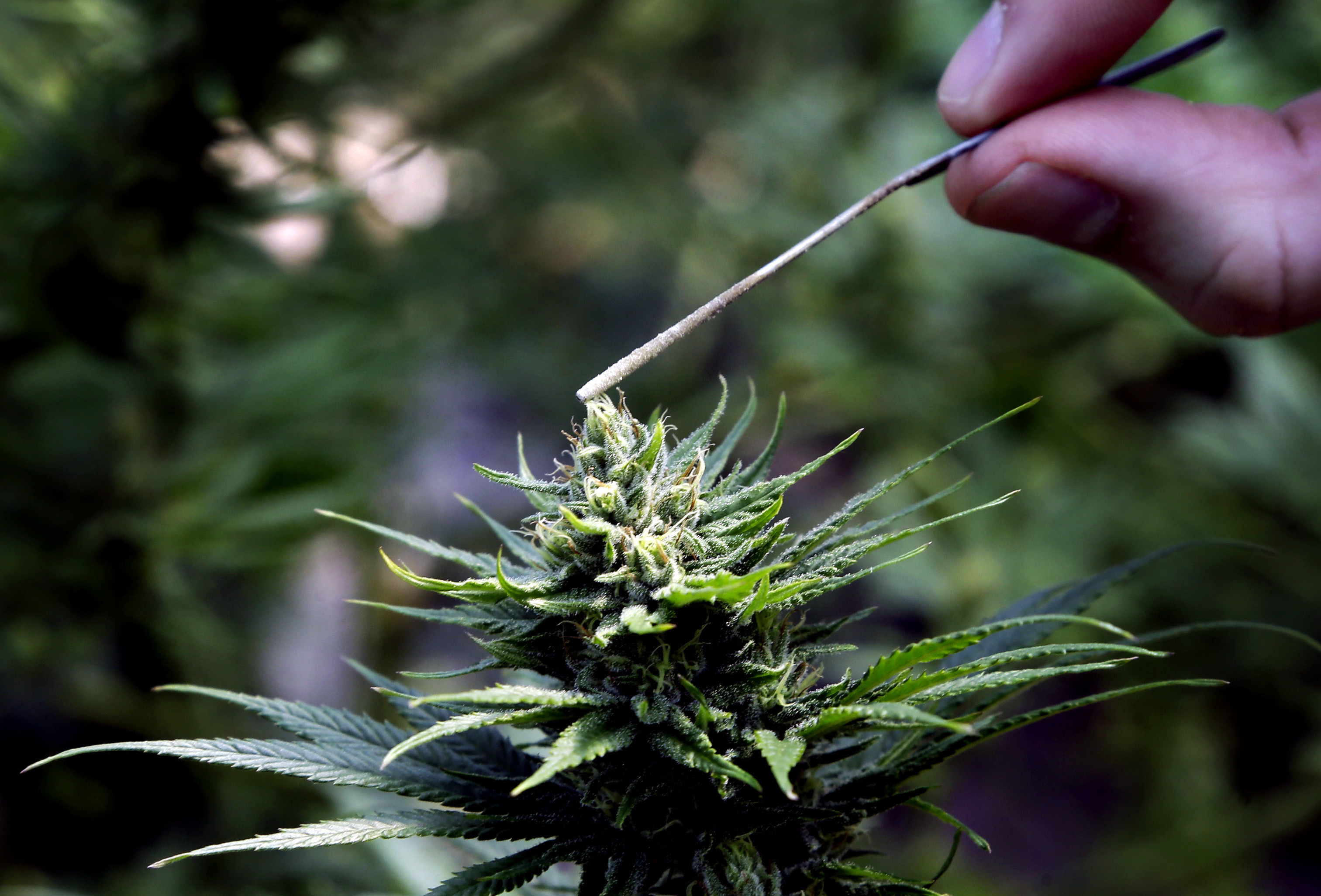
ST. GEORGE — The legalization of medical marijuana in Utah has brought a number of changes to the health care industry and provided new options to residents treating certain health conditions. However, with those changes, numerous questions have arisen regarding its effects on certain practices, including drug testing in the workplace.
The Utah Medical Cannabis Act, the compromise bill that replaced the medical marijuana ballot initiative after it was approved by voters during the 2018 midterm elections, details the procedures for cultivation, processing, medical recommendation and patient use of medical cannabis.
Something it doesn’t address, however, is what private employers can and cannot do in regard to drug testing and employing those who are using medical cannabis.
“There’s literally no guidance or direction in the cannabis act as it’s currently written that says to an employer for example, ‘You may continue to drug test’ or ‘You may not continue to do certain things,’” Ryan Nelson, president of the Utah office of the Employers Council, told St. George News.
The law does specify that public employers are required to treat employees using medical marijuana in the same way that they would someone using opioids or opiates, even though marijuana is not a prescription but rather a doctor recommendation.

However, because of the Utah Drug and Alcohol Testing Act, and because there is nothing in the Medical Cannabis Act saying that they can’t test, private employers are free to continue requiring drug testing in the workplace as they see fit. They are also technically able to hire or fire someone based purely on whether they use marijuana, medicinally or otherwise.
But other laws, such as the Americans with Disabilities Act, the Utah Antidiscrimination Act and the Utah Family and Medical Leave Act, provide a layer of protection for people with disabilities, which includes most of the conditions qualifying a person to use medical marijuana.
“If a private employer decides that they don’t like someone because they’re using medical cannabis, that statement in and of itself is not inherently illegal,” Nelson said. “However, the concern is still that they have just taken action against someone who has an underlying medical condition that is likely protected by one of the acts and infringed upon their rights.”
Despite those protections, an employer can still require pre-employment drug testing and choose not to hire a person using medical cannabis based on a workplace policy. But they must have a legitimate reason why a person who uses marijuana would be unfit for the job – such as safety concerns – to avoid potential wrongful termination or discrimination lawsuits.
“They need to make sure that they have a clear and justifiable reason, that’s business related, supporting that policy,” Nelson said.
Finding a legitimate reason not to employ medical cannabis users can be tricky for many positions, he said, and employers need to evaluate their current policies and decide whether it is critical that an employee in said position not use marijuana, and why. He anticipates that many businesses will simply choose to either stop testing for THC entirely or make exceptions for those with a medical cannabis card.
However, even if an employer does deem a position unsafe for a medical cannabis user, they cannot simply terminate an employee who is already employed without risking a lawsuit. As per ADA regulations, they are responsible for considering – and most often granting – a reasonable request for accommodation from the employee, such as a transfer to another position within the company. The key is for the employee and the employer to communicate about the situation, Nelson said.
“Now that the medical cannabis law is passed and employees can utilize cannabis legally, I think that will empower employees to speak up and to let their employers know, ‘Hey, I’m taking this, and I’m taking it because I have this medical condition,’” he said.
What about testing after someone is hired?
Employers are still able to enforce policies prohibiting impairment while at work in the same way they can with alcohol consumption.
That is difficult to regulate, however, because while employers can order a test after a workplace accident or if an employee appears impaired, it is impossible to prove that a person is currently under the influence of marijuana since the drug can stay in a person’s system for weeks – even months in some cases – after it is consumed. This can result in a positive test for THC even if the person is not currently under its influence, said Jason Emerson, owner of Beechtree Diagnostics, a testing laboratory in Salt Lake City.
As a result, an employer must either make a blanket policy against the use of marijuana or hope that in the case of a wrongful termination lawsuit a court will accept witness statements or a photo of the employee’s face and bloodshot eyes, a common sign that a person is under the influence of marijuana.
Chris Wayman, owner of CL Wayman Piping, told St. George News he employs 25 people and is concerned about the potential safety issues of having his employees climbing ladders, working with large pipes and driving the company truck while using medical marijuana.

Wayman also said he is concerned about the potential for employees who may have a medical cannabis card to use recreational marijuana in addition to what they are legally allowed, and he wants to be able to create a policy in which they can help employees who may be abusing substances of any kind, not just marijuana.
“That’s where you say, ‘Hey, I need you to get into some resources. Let’s help you, let’s see what we can do if it’s being abused,’” he said. “If it’s something the doctor has prescribed, we understand it’s really not impairing you. As long as you stay limited, we’re fine.”
One strategy that Wayman is considering is to require all of his employees to obtain a commercial driver’s license. Under Department of Transportation regulations, anyone with a commercial driver’s license is bound to federal laws regarding the use of marijuana, and federally, it is still a Schedule I illegal substance. By requiring all of his employees to operate under DOT regulations, Wayman could more easily maintain a drug-free workplace.
For employers like Wayman who wish to support employees as they go through the addiction recovery process, it is possible to perform a series of tests to find out if a person’s consumption of marijuana has increased or fluctuated over time, which is one of the testing services offered at Beechtree Diagnostics.
“What I can do is I can also test potencies,” Emerson said. “If I do a series of five tests on somebody over a three-month period, we can take a look and see the quantities of what the person’s smoking.”
Beechtree also offers tests that can protect employees from a wrongful termination if they are not using THC, but are using CBD, which has no side effects and is federally legal.
THC and CBD are two of many compounds found in cannabis and have different effects on the user. But drug tests, even ones that claim to test for THC, are actually testing for cannabis as a whole, so a person who is only using CBD will still come up positive for THC on a drug test. Beechtree Diagnostics can break down the molecules in the sample and determine whether the person used THC or CBD. And the results of the test do hold up in court, Emerson said.
“We want to be able to protect the people who are really working hard and just trying to get pain relief in a natural way,” he said.
Email: [email protected]
Twitter: @STGnews | @MikaylaShoup
Copyright St. George News, SaintGeorgeUtah.com LLC, 2019, all rights reserved.